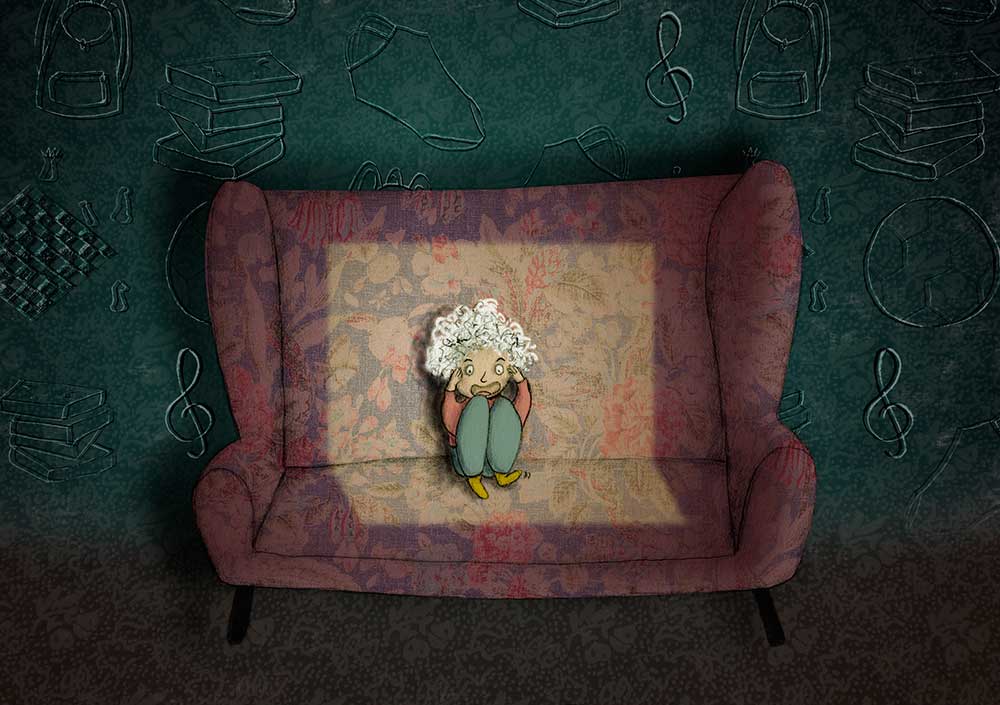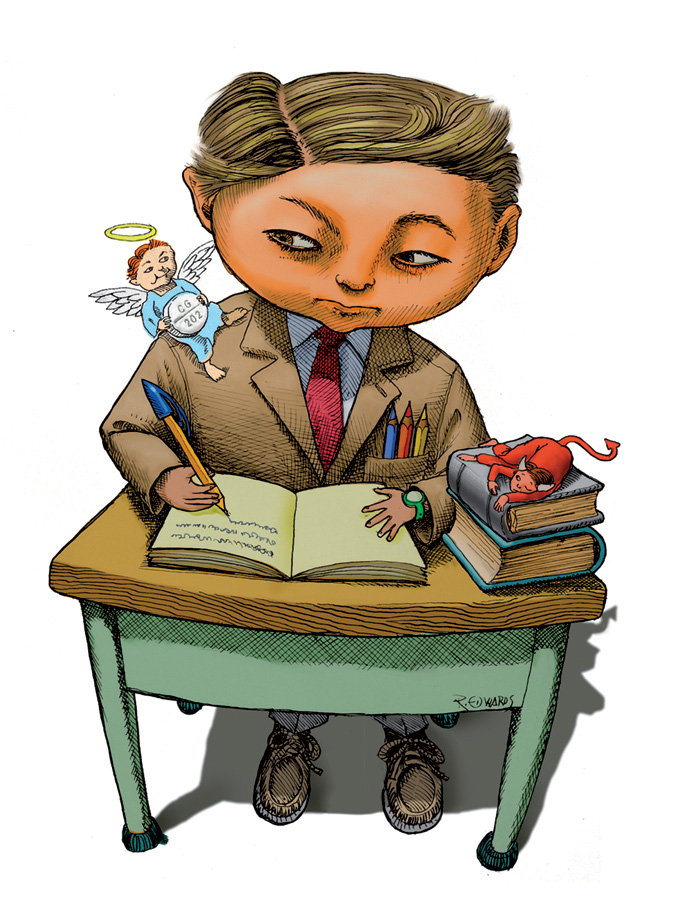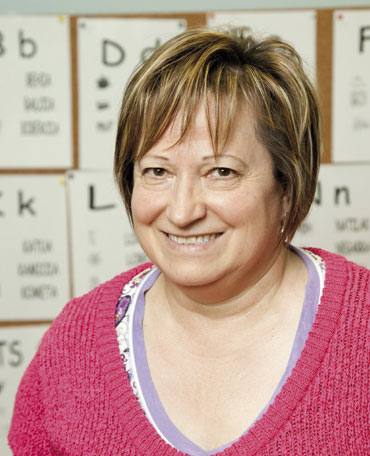Children of hyperactive society
- What's going on with attention capacity in today's society? What is it and what should we pay attention to? Who has that capacity? Is it a disease?

More and more children are diagnosed with Attention Deficit Hyperactivity Disorder (AGHA). This diagnosis condemns the child to an alteration or to a perpetual neurological disease whose solution is always and exclusively pharmaceutical. However, psychologists José Ramón Ubieto and Marino Pérez question all of this and place the problem within the neoliberal society: “For us, AGHA is not a disease, it is not a mental disorder. We cannot always accept the evidence.”
They do not deny that the child may have little capacity for attention, but argue that it may be due to multiple factors and that these are the ones that have to work: “Children who are diagnosed will surely have behavioral or family life problems or school performance. But a problem is not a disease,” says Pérez. “What makes the diagnosis is that it becomes a disease that is nothing but a problem.”
In view of this idea, they have emphasized the effort to understand the situation of the child, convinced that these eleven factors can be reproduced by society itself. “These children reproduce the characteristics of society. Society itself is hyperactive. It is a feature of neoliberalism. It wants to turn the problems it creates into individual problems, saying that we have a broken brain. He intends to naturalize the problems he has purposely created and compare the eleven conditions that are his own, hide them and homogenize everything,” says Pérez. They often offer a drug-oriented solution and also show disagreement with it.
Marino Pérez : "Society itself is hyperactive. It is a feature of neoliberalism. He wants to turn the problems he creates into individual problems, saying that we have a broken brain."
Society is, therefore, the one that, according to these experts, is altered, and children are a reflection of it. “SpongeBob is a cartoon chapter that has over five Heidi seasons: sound, colors, movement... A child today would have a chapter from the Heidi series and get bored because the senses are too stimulated,” says Ubieto. “Then we ask them to stay quiet and quiet for 50 minutes in school, when the classrooms have not changed since the 19th century. We are also not able to be in front of television without making zapping.” He has also referred to another situation to reinforce his arguments: a child awaiting his parents, focusing on a conversation he is not interested in. “Today they are given the mobile phone to overcome this situation. What worries us most is to run out of battery,” he added.
On the other hand, in schools where changes have taken place, the rate of children diagnosed with AGHA has greatly decreased, as in a school in Barcelona: they go to the garden in the first hour, take courses throughout the school, change class, introduce movement in class hours as something natural... These changes take into account the child's movement and help manage it.
Overeducated
In addition to the fact that society is hyperactive, it has also been reported that it is hyperconnected and hypersexualized. Around these three concepts is defined the character of today's living beings, especially those born from the year 2000. “It’s not just the excess, but the decay of the important things that this entails,” Pérez said.
José Ramón Ubieto: "We ask you to stay quiet and quiet for 50 minutes in school, when classrooms have not changed since the 19th century."
Today's boys and girls have been having sex in their heads for five years, which negatively affects them in developing their relationships. They mimic what they see leaving behind the natural steps: search, find, reflect... Today, around the world, the starting point for sexuality is porn. The largest group of online porn consumption worldwide, according to UN data, is that of young people between 12 and 17 years of age, which is increasing. The imitation of these models has given rise to numerous cases of impotence in boys, as well as the existence of a ruptured anus.
And all of that online. They have also added that the permanent connection eliminates real conversations, that there is no real-time relationship with real people, who are not natural.
Today’s children therefore live within the so-called hyper regime, all of them dependent on society, but only some of them are diagnosed. Pérez relates one of the reasons to movement. Movement is our first contact with the world. Some have more than others. Since the pace of society is very intense, it will be easier for those with faster movements to get into that wheel. “This child will move more than we expect when he has to pay attention. It’s hard for adults to focus on things they don’t care about, but they don’t have problems in themselves,” Ubieta explains.
What do you do about it? Put a diagnosis on kids who bother or change something in the system so that movement itself is an option? The same questions arise: “If we believe that what is wrong is not the education system, but the child, we will meet a lot of people with AGHA. Of course there are children with imbalance. AGHA exists, of course. But the question is, what are the reasons for that child to rebel? To not be attentive to what happens to you and how we can help you.”
The hyperactive itself is a body with excessive activity and that cannot manage it. The clinical psychologist and psychoanalyst Pérez advises to partner with him to help the injured, who does not escape him.
The hyperactive itself is a body with excessive activity and that cannot manage it. The clinical psychologist and psychoanalyst Pérez advises to partner with him to help the injured, who does not escape him. When the teacher behaves badly, it focuses on some children, but how can the child find the teacher or teacher with a positive attitude? “In one case I recommended the teacher to look at the child from a positive point of view, to see if I could see good things. The relationship between the two was changing. This wheel can change course.”
The importance of boredom
“It’s not us, we don’t do our own, but the replica of what the market offers,” Ubieto said. There has been talk of the society that receives the greatest satisfaction through objects, such as the excesses of gifts and food we receive during Christmas. Fashionable mobiles, new cars and clothing premiered. “Children’s lives are too full and thought and creativity are very limited. We lower the desire, if you've spent the day connected to a machine you don't need anything, you're connected and ready. But to invent something, you first have to feel empty, miss something; for example, be bored.”
Today, they've also said that parents are overly concerned about their children because they think they have problems if they don't follow the milestones that are marked: “We are colonizing childhood according to the ideals of adults. We want them to be like us, and that hyper-regularity denies them happiness. We use them as producers and that is contrary to happiness. Childhood is about getting bored, playing, curious, researching, discovering. Anyone who has enough time to be an adult will have a happy childhood.”
"We are colonizing childhood according to the ideals of adults. We want them to be like us, and that hyper-regularity denies them happiness. We use them as producers and that is contrary to happiness. Childhood is to get bored, to play, to curiose, to research, to discover."
Pérez has added that we misuse happiness, because all the fun is measured with adjectives, including school: “We should worry about the momentary, not how happy I am doing. This criterion is not valid for all signs of life.”
What about those identities?
The conditions can be multiple: biographical, social, concrete, traumatic situations, duels, sexual abuse, seeing the mother beating, sequelae according to the rule of hyper... Faced with this, the philosophy and struggle of the two experts is not to remain alone in a diagnosis. “When we believe that the basis of the problem is a brain disability we will stop thinking,” said Ubieto.
After all, they argue that the child should be analyzed as a whole, that the context and emotions should work and that the child should get to the base. Always loving the child: “Society does not tolerate these children and wants to include them in the list of diseases. I see it as a kind of personality, as a way of being. These children are very curious, creative, more open to new experiences, creators of new sensations.”
Ikasleak ez direla gai eserita adi egoteko, ez dutela arreta jartzen, hiperaktibo asko dagoela… kexa orokor diren garaiotan, hain juxtu eserita denbora gehiegi igarotzen dutela uste du Angela Hanscom pediatrak: haurrak ez dira behar adina mugitzen, eta horren ondorioz... [+]
“Hemendik urte batzuetara, haurrak gehiegi medikatzeagatik sortutako gaixotasunez kezkatzen hasiko gara eta ea nola desegiten dugun egindako guztia”.
Hamar gaitz asmatu, farmazeutiken eskutik artikuluak iritzi kontrajarriak sorrarazi ditu. Hiperaktibitatea gaitz asmatuen zerrendan jartzeak piztu du polemika gehien.
Horixe hezkuntza arloko jendeak helarazitakoa: irakasleak arduratuta daudela, gero eta haur gehiagok duelako Arreta Gabeziaren Hiperaktibitate Nahasmendua delakoa, kopuru kezkagarrietara iristeraino. Eta hori entzunda, gogora etorri zait Diagnostiko okerren ondorio... [+]



















